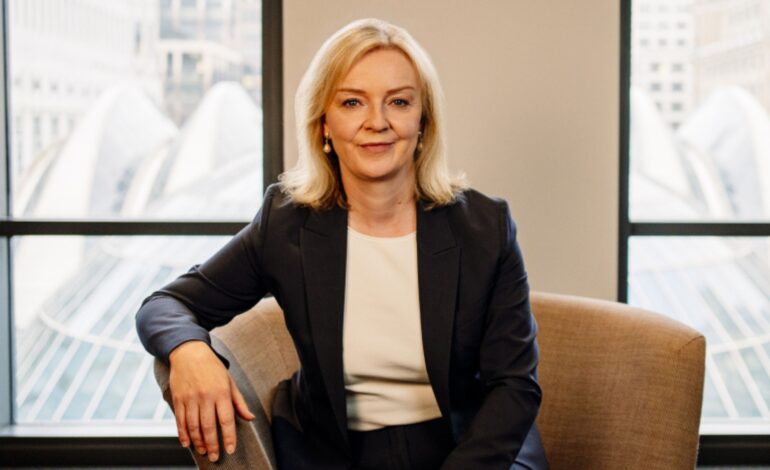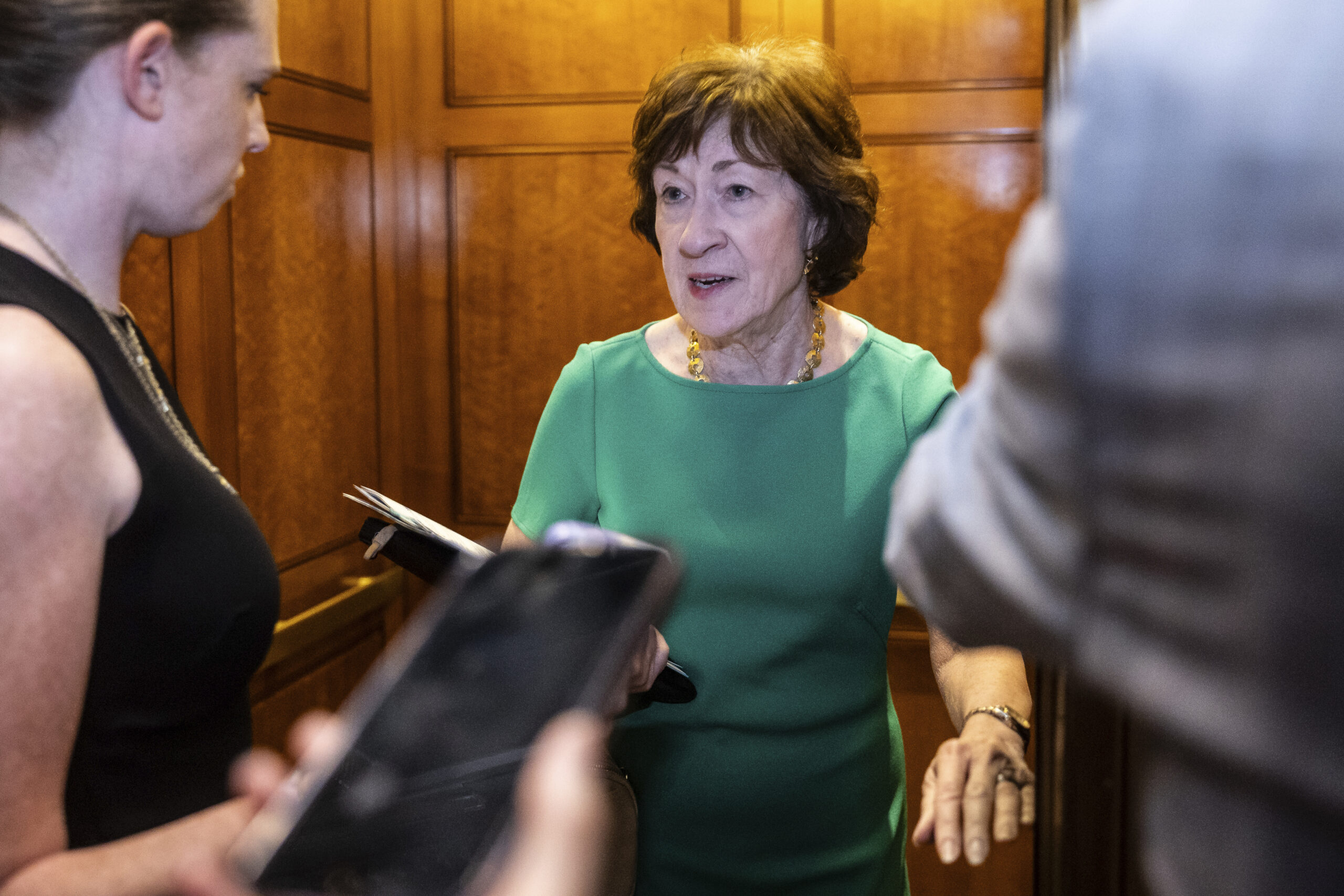Liz Truss Calls for British Political Revolution Echoing MAGA

When Liz Truss exited 10 Downing Street for the last time on October 25, 2022, she left behind a tumultuous political landscape after serving just 45 days as the United Kingdom’s shortest-serving prime minister. Her brief tenure was marked by two significant events: the passing of Queen Elizabeth II and a controversial tax-slashing mini-budget that rattled financial markets. This led to a swift loss of support from her own Conservative Party, culminating in the collapse of her administration.
Now, Truss is re-emerging with a bold message aimed at reshaping the British right, which she believes is on the brink of a profound transformation. In a recent interview with Newsweek, she asserted that Britain needs its own “MAGA moment,” drawing a parallel with the movement that propelled Donald Trump to the presidency in the United States. Her comments reflect a broader trend of growing discontent within the UK, particularly in light of recent political events.
Political Unrest and Public Sentiment
British politics is currently experiencing significant tension. Following the tragic murder of three young girls at a dance class in Stockport, anti-migrant riots erupted across the country in July and August 2024, fueled by misinformation regarding the identity of the perpetrator. This summer, authorities struggled to manage widespread protests outside hotels housing prospective asylum seekers. On September 13, an estimated 150,000 people attended a “Unite the Kingdom” rally in London, organized by right-wing activist Tommy Robinson, who has become a controversial figure in discussions around migration and societal issues.
Truss interprets these developments as signs of a public uprising. She cites the recent polling advantage gained by Nigel Farage‘s right-wing Reform UK party as evidence of a distinct shift away from the traditional Labour and Conservative political duopoly. “All of those things point to a very, very unhappy public,” she stated.
Truss’s Vision for Change
In her latest book, titled *10 Years to Save the West*, Truss emphasizes the need for a revolution akin to the MAGA movement in the U.S. She argues that without such a shift, Britain faces severe challenges. “We need the type of revolution that we’re seeing in the U.S., the MAGA, the independent media revolution,” she explained. Truss believes that the current political climate reflects a demand for change, but she also notes the gap between public sentiment and the necessary actions to effectuate real transformation.
Truss has become increasingly vocal about what she perceives as a deep-seated bureaucratic obstruction facing conservative governments, referring to it as the “deep state.” She asserts that her experiences in office revealed how entrenched and resistant these structures can be. “People didn’t realize how bad it was,” she remarked, suggesting that other leaders, including current Prime Minister Keir Starmer, have yet to fully grasp the extent of this challenge.
In discussing her former party, Truss criticized members of the Conservative Party whom she likened to “Republicans in Name Only” (RINOs), arguing that they have failed to confront leftist ideologies effectively. She pointed to the leadership of current Conservative leader Kemi Badenoch as lacking the necessary assertiveness to reclaim the party’s position in the face of rising right-wing populism.
Polling data indicates that Reform UK currently holds a significant lead over both the Labour Party and the Conservatives. Should this trend continue into the next general election, it could mark a historic shift in British politics, potentially leading to Farage’s ascension to power.
Truss has refrained from commenting on whether she would join a government led by Farage, noting that she does not anticipate another general election until 2029. She stated, “The unelected bureaucracy is incredibly powerful,” emphasizing the need for systemic change in British governance.
Controversial Figures and Future Aspirations
Truss’s comments have included a nuanced defense of Tommy Robinson, a figure often criticized for his far-right views. She acknowledged that Robinson brought attention to serious issues that she believes have been overlooked, particularly in relation to grooming gang scandals in the UK. “I think it is correct that Tommy Robinson drew attention to a problem that had been brushed under the carpet,” she said, raising eyebrows within her party and among critics.
Additionally, Truss paid tribute to Charlie Kirk, co-founder of Turning Point USA and a close ally of Trump, who was tragically assassinated on September 10. Their meeting earlier this year focused on strategies to revitalize conservative thought in the UK, and Truss expressed her shock at his death, stating, “What has happened on the extreme left…shows how wrong they’ve gone.”
Looking ahead, Truss is positioning herself as a voice for change within the Conservative Party and British politics at large. She expressed a desire to share her ideas freely, having felt constrained during her time in office. “I think the problems are so big in Britain that we do need a revolution, and I want to work to achieve that,” she concluded.
As the political landscape continues to evolve, Truss’s calls for a British MAGA moment may resonate with a growing segment of the population seeking radical change in governance and policy.






